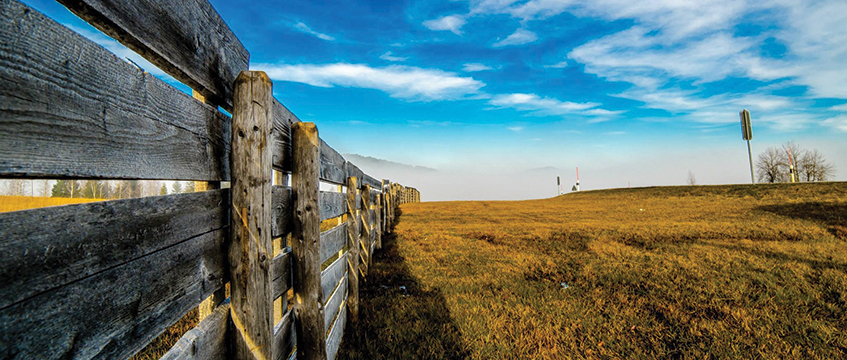Jacqui Joyce and Peter Bourke explain the evolution of a new mediation service that aims to help neighbours resolve disagreements.
Some things in life need no explanation, we instinctively know them to be true. One of these is the wretchedness of a boundary dispute and the cost and stress involved, particularly if the matter is determined by a court or tribunal. These disputes can cost each side anything from £10,000 to £250,000 (plus VAT) in legal and surveying fees. In the worst-case scenario, they can even result in the losing party having to sell their home to cover their costs and those of their opponent. A high price to pay, in monetary and emotional terms, for what is often a very small piece of land.
Of course, boundary disputes have always been around, but solicitors have seen a rising number during the pandemic as people have been confined to their homes and had more time to start DIY projects. Quarrels over apparently minor issues such as who owns a fence, unkempt hedges, party walls or use of driveways can swiftly escalate and are generally slow to resolve.
The concept
How to avoid the difficulties of boundary disputes and prevent the cost escalation has long been a concern of lawyers, surveyors and judges. In January 2015, the Ministry of Justice published the results of a scoping study into the problems affecting boundary disputes resolution. This study found that the most widely supported approach was to promote the use of mediation.
The brief to explore this further was given to the Civil Justice Council, which liaised with the RICS and the Property Litigation Association to see if a bespoke scheme could be devised to deal with boundary disputes, the focus being on mediation. This concept was recognised in the final report of the CJC’s Working Party on Alternative Dispute Resolution, published in December 2018, which referred to the work being done to set up the Boundary Disputes Mediation Service. The report also recognised that there was support for boundary disputes as an area where mediation should be encouraged and possibly made compulsory.
The reality
Often there are a lot of good ideas that, as good intentions, never progress. However, in this case, the idea has become a reality.
In May, the Boundary Disputes Mediation Service was formally launched by the RICS and the PLA. The scheme is administered and quality controlled by the RICS, and details can be found at www.rics.org/bdms. RICS will also gather statistics on referral and settlement rates.
The initial panel comprises 16 mediators – a mix of lawyers and surveyors – all of whom have experience in mediating boundary disputes. The appointment process included a full training day and assessment interview, and the panel will be periodically reviewed to ensure that standards remain high.
The cost
The service operates on a fixed-fee basis. There is an application fee of £240 (including VAT) and a mediation fee of £2,100 (including VAT) per party for an eight-hour mediation session. An overtime rate will be agreed if the mediation lasts more than eight hours.
While some may consider this high, this is the market rate for experienced mediators and, compared to the potential costs of litigation, it is a small price to pay to resolve the matter. Even if mediation does not result in a settlement on the day, it often moves parties forward to a position where they can settle very shortly afterwards.
Going forward
The hope is that this scheme will provide the judiciary with a genuine alternative for parties in boundary disputes when they turn up in the courts (or even before they issue proceedings). The courts have been backlogged for some time with cases and this has not been helped by the pandemic. Anything that can free up court time will, we believe, be welcomed by the judiciary, particularly when it also offers the parties a more flexible and cost-effective method of resolving the issues at hand.
It will be interesting to see if the CJC follows up on the suggestion in its final report that hinted at compulsory mediation in boundary disputes. This may be more likely now that it has a bespoke scheme to which to refer these cases.
As far as we are aware, this is the first sector-specific mediation scheme, other than one for NHS negligence disputes. It is essentially a trial run to see whether it makes a difference and offers a true alternative to court. If effective – and we see no reason why it should not be – it could well be the forerunner of many such schemes.
.
Jacqui Joyce is a member of The Property Mediators, whose members specialise in mediating property disputes, and Peter Bourke is a partner in the property disputes team at Wilsons. Peter is chair and Jacqui is a member of the PLA’s Law Reform Committee and both were involved in setting up the BDMS








